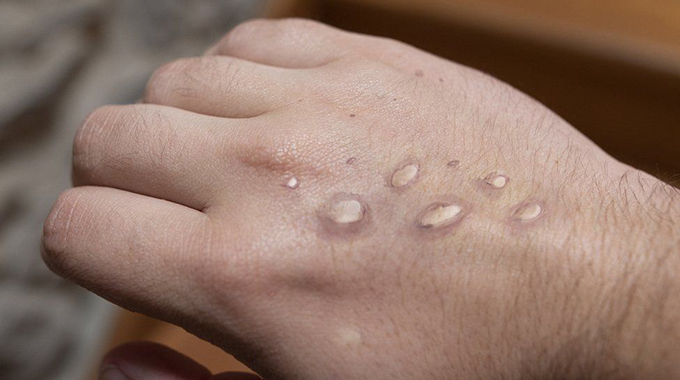Monkey-pox: Nation on high alert

Mukudzei Chingwere Herald Reporter
Zimbabwe is on alert to deal with virus, now detected in eight African countries including South Africa and Mozambique, though Zimbabwe is yet to record a case of the rare disease.
In their update this week the World Health Organisation said 39 countries have confirmed cases of the virus leading to an emergency meeting convened by the world body to confront the virus. The disease in two forms, a West African clade and Congo basin clade, is endemic to a small group of African countries but this year has seen a small global outbreak of the milder West African version although numbers are modest. There was little concern when monkeypox was limited to small local outbreaks in the African rain forest countries but since its breakout there have been a lot of headlines.
The virus was heavily suppressed during the major international effort to eradicate smallpox in the 1960s and 1970s since the smallpox vaccine is 85 percent effective against the much milder but related monkeypox but infection rates are thought to have been slowly rising since the end of smallpox vaccinations.
Zimbabwe waged a thorough and effective response against Covid-19 minimising its effects, and is willing to do the same to any virus threatening to be an endemic of international concern.
The Ministry of Health and Child Care spokesperson Mr Donald Mujiri said no case has been reported in Zimbabwe as yet but systems are in place to confront it.
“The situation remains the same from our June 6 response. The Ministry of Health and Child Care wishes to reassure the public that currently no cases have been reported in Zimbabwe, but it is monitoring the evolving situation of the outbreak in other countries with keen interest.
“The ministry has also placed its structures on high alert. Anyone who suspects that they have similar symptoms as that of monkeypox should report to the nearest health facility as soon as possible or call our ton-free line 2019 for assistance,” said Mr Mujiri.
In an earlier statement the Ministry said, “monkeypox is a rare viral zoonotic disease endemic to Central and West Africa. The disease is not endemic in Zimbabwe.
“It spreads through close contact with people, animals or material infected with the virus. Symptoms of the disease include rash, fever, headache, muscle ache, swelling and back pain.
“The symptoms of monkeypox are similar to but milder than the symptoms of smallpox.” It has also been confused with chickenpox.
According to the WHO, monkeypox is usually a self-limited disease with the symptoms lasting from two to four weeks. Severe cases can occur, and the case fatality ratio has been around 1 percent in the West African clade and higher in the Congo basin clade.
WHO Regional Director for Africa, Dr Matshidiso Moeti recently confirmed the cases and other suspected cases in Africa.
She noted that a thorough response will be needed through things like testing and immunisation, at this stage she said mass vaccinations are not needed.
“’This is clearly an unusual situation, that is affecting more and more countries,” said Dr Moeti recently.
“So soon after the inequities Africa experienced in respect of the Covid-19 response, we recognize of course that we cannot afford any potential repeat, and need to be adequately prepared.”
Prevention and control measures recommended by Government include avoiding contact with animals that could harbour the virus, including animals that are sick or that have been found dead from unknown causes.
Avoiding contact with any materials, such as bedding and clothing that has been in contact with a sick animal or person suspected to have monkeypox infection, isolating suspected infected patients from others who could be at risk for infection.
And then the normal measures to combat virus infections such as practising good hand hygiene with washing of hands with soap and water or using an alcohol-based hand sanitiser, and using personal protective equipment when caring for suspected patients.









Comments